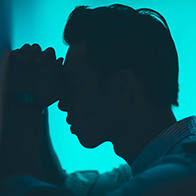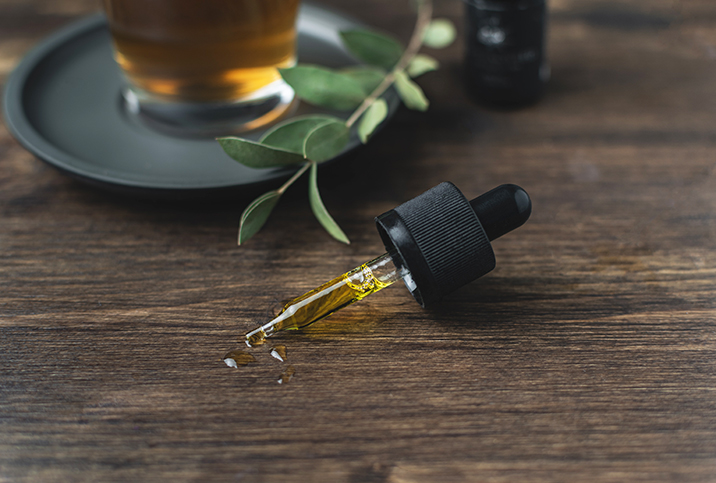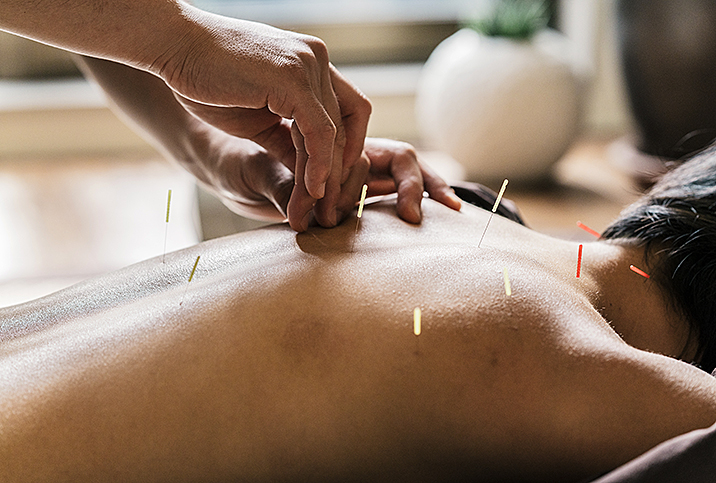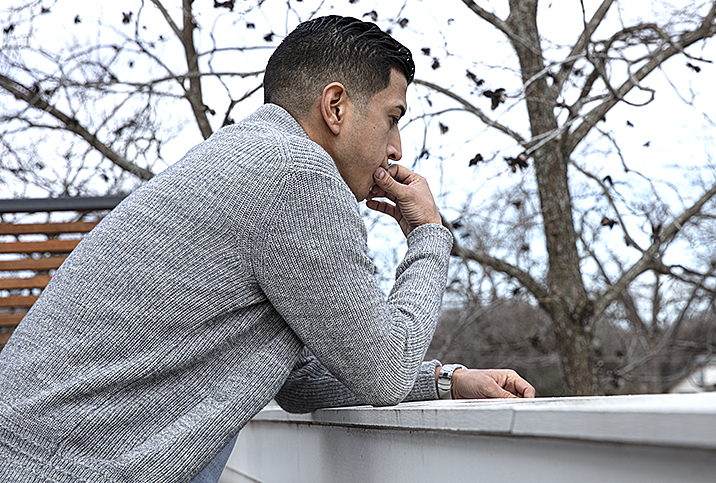How to Manage Chronic Pain Without Exacerbating Erectile Dysfunction

If ever there were a real-world example that illustrates the concept of "the cure may be worse than the disease," it's the crossroads of chronic pain and erectile function.
Sure, there are plenty of medications out there that can address chronic pain. But many—probably most—of them have negative sexual side effects. Plus, chronic pain has psychological, chemical and physical components that can inhibit a man's ability to get erect.
To add a big ole middle-finger salute on top of all that, the depression and anxiety that often accompany chronic pain may be best treated by antidepressants, which can also cause erectile problems.
Now, the good news: More and more clinicians are adopting a whole-body approach to helping men cope with this constellation of interlocking issues.
Here's what you need to know.
Opioids and erectile response
Any conversation about chronic pain has to begin with the elephant in the room: opioids.
The opioid addiction crisis of the past 20 years has caused devastation to people from all walks of life and in all parts of the United States. Even if you exclude the abuse and addiction issues and consider only judiciously prescribed, responsibly used and fully monitored opioid prescriptions to carefully treat chronic pain conditions, these powerful drugs can still negatively affect men's sexual response.
"With opioids, we know that chronic use suppresses the pituitary gland, and that, in turn, will reduce testosterone levels," said Neel Parekh, M.D., whose Ohio-based urology practice specializing in men's fertility is affiliated with the Cleveland Clinic. "So in our guidelines, any man on chronic opioids should be checked for low testosterone since they commonly go hand in hand."
Supplementing natural testosterone
A diagnosis of low testosterone levels, caused by opioid use or not, usually leads directly to a conversation about testosterone replacement therapy (TRT). For many men—even those with chronic pain—testosterone replacement alone often leads to better erections.
One three-year study out of Spain, published in 2017, followed men who were taking opioids for chronic pain. Researchers measured participants' erectile function, among other factors. The men who had significant erectile dysfunction (ED) were prescribed standard androgen treatment (testosterone replacement therapy), and researchers followed up with them at regular intervals during the study period. Within just six months, more than 40 percent of the men reported significant improvements in their sex life.
On top of that, testosterone can help them respond better to other ED treatments.
"More and more work is coming out now showing the importance of hormones when it comes to erectile function," said Amy Pearlman, M.D., a urologist and the director of the men's health program at the University of Iowa. "What the research suggests is that, for example, those guys who used to respond to something like Viagra and now, five years later, it's no longer doing the trick, you test their testosterone and it's low. You put them on testosterone therapy, and oftentimes they become better responders to the oral medications."
The psychological component
Perhaps just as important to the Spanish study's findings, these men also reported improvement with their feelings of anxiety.
The anxiety and depression angle and its significance to the story of dealing with ED and chronic pain cannot be overlooked. It highlights how these psychological issues can directly affect men's physical health, sexual health and overall quality of life.
"The brain sends chemical signals to the penis that will either open up the blood vessels or close them down," Pearlman said. "We talk about the mental health component of performance: When you're stressed out, the blood vessels constrict. So anyone who is in pain, if they said they didn't have issues with erections at times, I wouldn't believe them. I don't see how that would be possible."
The ways these issues are interwoven never seem to end. One 2020 study published in the International Journal of Impotence Research found men with ED and chronic pain had a significantly higher chance of also having anxiety and/or depression, among other psychological issues.
And here's where men run into yet another unlucky crossroads: Treating depression and anxiety often leads straight to medication that also negatively affects the ability to get an erection.
"A lot of antidepressant medications—and some of the neuropathic pain medications, too—have a negative effect on sex drive and erections," Parekh said. "So men should talk to their doctor about antidepressant medication that has less of a negative effect on sex drive or sexual function."
Some antidepressants that have the lowest reported incidence of ED as a side effect include:
- Mirtazapine (Remeron)
- Bupropion (Wellbutrin XL, Wellbutrin SR)
- Vortioxetine (Trintellix)
- Vilazodone (Viibryd)
And then there's the pain
Another factor that must be considered when dealing with chronic pain and erectile dysfunction is the pain itself. Being in a state of perpetual pain isn't exactly conducive to sexy times, after all—especially if those pain signals are coming from your pleasure region.
"I see a lot of chronic pain in the pelvis, in the testicles, that sort of thing," Parekh said. "A lot of guys will have pain after ejaculation or pain if their testicles get bumped during sex. Obviously, if it hurts, you're not going to want to do it. A lot of times, they'll have erectile dysfunction, too, and I'll tell those guys, once you get the pain resolved, that's going to help the erections."
When dealing with such a complex and intertwined buffet of problems, there just isn't a simple fix. The key to dealing with chronic pain along with the ED—either preexisting or caused by the pain and/or medication—depression and other issues that come with it may just be to carefully treat and monitor all of these issues at once.
Yes, it's challenging to maintain such a three-way balancing act.
But if you talk with medical professionals candidly and openly about all of the issues that affect you, they can ensure you get the right overall treatment package to keep your libido healthy and happy—along with the rest of you.




















